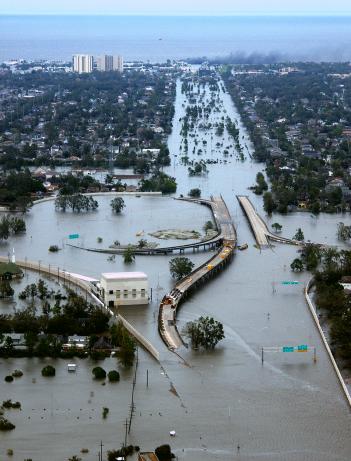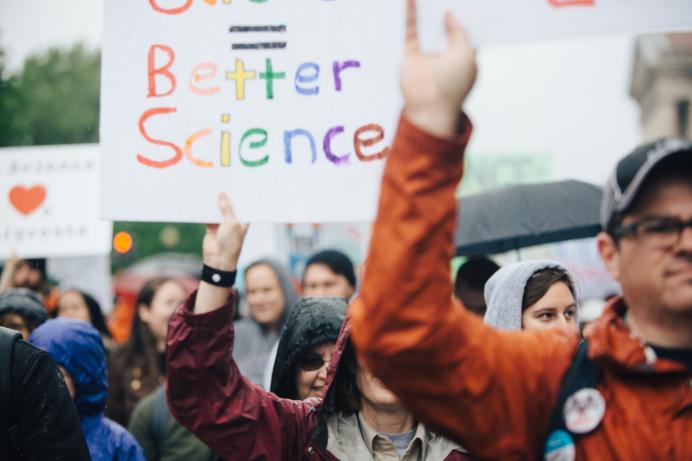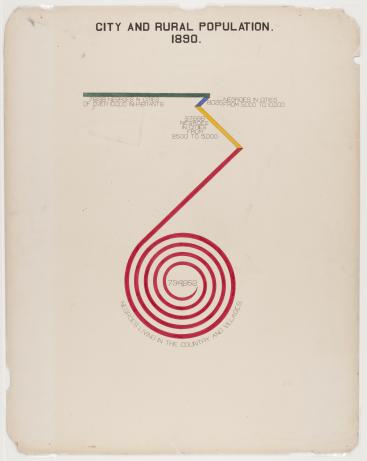In many respects this is nothing new. Scientists and other experts have long been called on to help communities meet unexpected challenges and prepare for looming threats. Yet the present moment seems distinctively unsettled. Certain claims about the relationship between science and politics—claims long taken for granted by historians of science, among others—no longer seem self-evident. As authoritarian regimes advance and skepticism toward science flourishes, the presumption of a close relationship between liberal democracy and modern science, in particular, has been thrown into question. The crisis, then, is not just about environment, health, security, or the economy: it is also about our capacity to take collective action based on a shared understanding of the worlds around us.

A photograph of flooding in New Orleans in the aftermath of Hurricane Katrina in 2005. Such not-so-natural disasters reveal how well-established metrics of environmental risk are being up-ended by climate change. Source: US Coast Guard.
Making Knowledge, Living Together
The department “Knowledge Systems and Collective Life,” established at the Max Planck Institute for the History of Science (MPIWG) in 2022, approaches this political-epistemological crisis as both a challenge and an opportunity for the history of science and related fields.
Most scholarship on science and politics has focused on how scientists and their discoveries have influenced laws and regulations, or on how governments and ideologies have influenced the practice of science. While these are important topics, they represent only a fraction of the enormous range of ways in which communities throughout history have linked the making of knowledge to the shaping of collective life. Many of these other ways of knowing and relating are more informal, local, and quotidian than modern science and politics, but they are not for those reasons any less important. Modern science itself depends on a variety of nonscientific ways of understanding environments, bodies, and even the cosmos as a whole, just as modern politics depends on numerous alternative ways of allocating power and making collective decisions. By ignoring these other ways we risk not only leaving out large parts of the story but also misunderstanding the present crisis of science and politics.
Researchers in the department therefore use historical and ethnographic methods to include actors, perspectives, and traditions that have often been neglected or marginalized. We study modern science along with the other knowledge systems that it depends on, competes with, or seeks to displace, each of which has its own social structure, material culture, and standards of evidence and argumentation. We also study forms of collective life beyond conventional politics, including community groups, scientific associations, and transnational networks. We take an expansive view of the kinds of beings who can participate in collective life, recognizing that life in common—political life in the broadest sense—would be impossible without the contributions of animals, plants, fungi, viruses, bacteria, and other nonhumans.

A photograph of the March for Science in Washington, DC, in 2017. Demonstrations of this kind indicate the unsettled relationship between science and politics today and point to the long history of contests over the relationship between knowledge-making and collective life. Source: Molly Adams, CC BY 2.0, via Wikimedia Commons.
Environmental Crisis, Trust in Science, and the Politics of Data
Our research is organized around three themes. One concerns the role of crisis in shaping the production of environmental knowledge. Science clearly has a role to play in addressing climate change, biodiversity loss, toxic pollution, and other environmental problems, but how has science itself changed in response to crisis? How have its relations to other knowledge systems shifted? We explore these questions while taking a critical view of the concept of crisis, which has often been deployed to silence dissenting voices and constrict timelines of action.
A second theme concerns trust in science. It is often said that trust in science has weakened in recent years along with trust in government and the press. Our research situates conspiracy theories, alternative facts, and other contemporary manifestations of distrust in a long-term, comparative context. Rather than investigating trust in isolation we seek to understand how the forms of collective life that science has fostered, and the kinds of knowledge it has sought to produce, have created conditions under which trust can either wax or wane. This approach requires us to take seriously the possibility that distrust may sometimes be well-founded.
Finally, our research concerns the practices and politics of data. While data are an important resource for science and policy, they have also served as fuel for skepticism and contestation. By studying how data are made and used we seek to gain insights into central themes of historical epistemology, such as the emergence of new scientific objects and the material practices of knowledge production, but also histories of property, labor, sovereignty, rights, and representation. As with the other research themes described above, this requires us to pay attention to historical actors who have often been neglected or marginalized.

A visual representation of the number of African-Americans living in urban and rural areas of the United States, based on the census of 1890. Designed by W.E.B. Du Bois for an exhibit at the Paris Exposition of 1900, the graphic suggests how data have been creatively mobilized for political, social, and epistemic ends. Source: Library of Congress.
Oral History, Experimental Media, and Community-Engaged Research
The department is also committed to developing the methods and sources necessary to tell these kinds of broader, more inclusive stories. Unconventional, marginalized, or oppositional ways of making knowledge and organizing collective life are often misrepresented in official archives and published materials, if they are represented at all. But there is an abundance of information about them to be found in oral traditions, individual recollections, and informal archives. To support researchers’ use of such sources, we are building a laboratory that will provide training, equipment, and a dedicated working space for oral history and multimodal research.
We also aim to develop collaborative working relationships with non-scholarly organizations, community groups, and individuals who hold relevant knowledge about the past and who are confronted by the legacies of that past in their daily lives. In this way we seek to serve as a meeting point for people who are committed to improving our understanding of the relationships between knowledge systems and collective life. Such collaborations are essential to achieving the department’s research aims and may contribute to charting a path through the political-epistemological uncertainties of the present.
